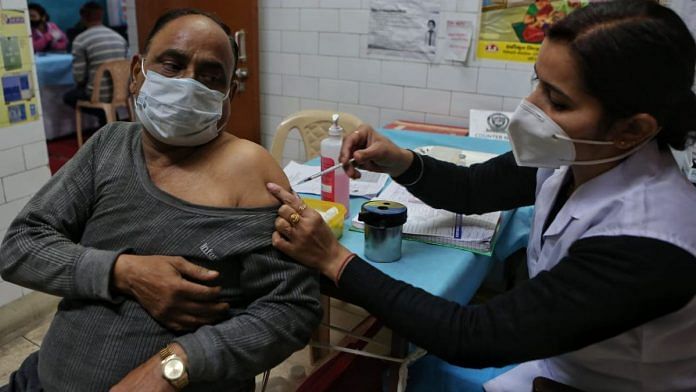Bengaluru: The most important tool we have today to protect against severe disease and death from Covid-19 are vaccines that were rolled out in a record time through global cooperation.
However, as newer, immune evasive, and rapidly spreading variants like Omicron emerge, experts recommend booster shots — termed precaution doses in India — of vaccines.
ThePrint answers common questions about booster shots, how they work, how they benefit the immune system and increase protection, and who are to take them.
The need for vaccine boosters
Vaccine boosters are further doses of the vaccine, and they work in the same way by eliciting an immune response from the body. This includes the production of antibodies.
With each vaccine dose, spaced apart, the level of immune response climbs. Additional boosters enable a more precise and honed immune response, as well as an increase in the quantity of antibodies produced by our system.
Newer antibodies are usually more targeted through repeated vaccination and are capable of neutralising the virus better and faster, thus reducing transmission of a faster-spreading variant.
How do boosters improve immune response?
There are two main components of our immune response: the humoral response and cell-mediated response.
Humoral response deals with antibodies. With the aid of helper T cells, the B cells in our body are activated and start to produce antibodies. Neutralising antibodies then act and dissolve any free-floating virus before it enters cells.
Cellular immunity has to do with T cells. The same helper T cells activate cytotoxic T cells, which then go on to destroy infected cells in our body, thus preventing viral multiplication. Even when antibody levels drop post infection or vaccination, T cells are able to quickly mount a response when the pathogen is encountered by our bodies naturally.
With each vaccine or booster dose, the number of B cells activated increase, leading to a consequential increase in neutralising antibodies. These B cells also traverse the body’s lymph nodes, fine tuning themselves and becoming more efficient at binding to the virus strongly and quickly. This is called affinity maturation.
Can we mix and match booster doses?
Scientific evidence indicates so far that ‘heterologous’ vaccines, or mixing and matching them, produces better immune response than using a third dose of the same series.
Early studies mixing Covishield and Covaxin have produced similar results.
When should boosters be taken?
When there is no longer an infection, the body’s immune response cools down and antibody levels start to drop. Currently, we do not know at what level of such waning of antibodies does a person lose protection — or even if they do. There is robust data to indicate that even a single dose could prevent severe disease, hospitalisation and death in a majority of cases without severe comorbidities.
The booster or precaution dose is to be taken at the point when studies indicate that there is a substantial drop in immunity post-vaccination. The gap varies for different vaccines.
For example, Pfizer vaccines are effective when spaced out for 21 days, Oxford-AstraZeneca after 12 weeks, J&J shots show a better immune response when given a booster after six months and so on, as indicated by trials.
However, the schedule of booster doses is subject to vaccine availability and stage of spread in a country.
(Edited by Saikat Niyogi)
This article has been updated to correct a factual error about trials mixing Covishield and Covaxin. The error is regretted.
Also read: With ‘precaution doses’ approved in India, here’s what we know about Covid vaccine boosters



